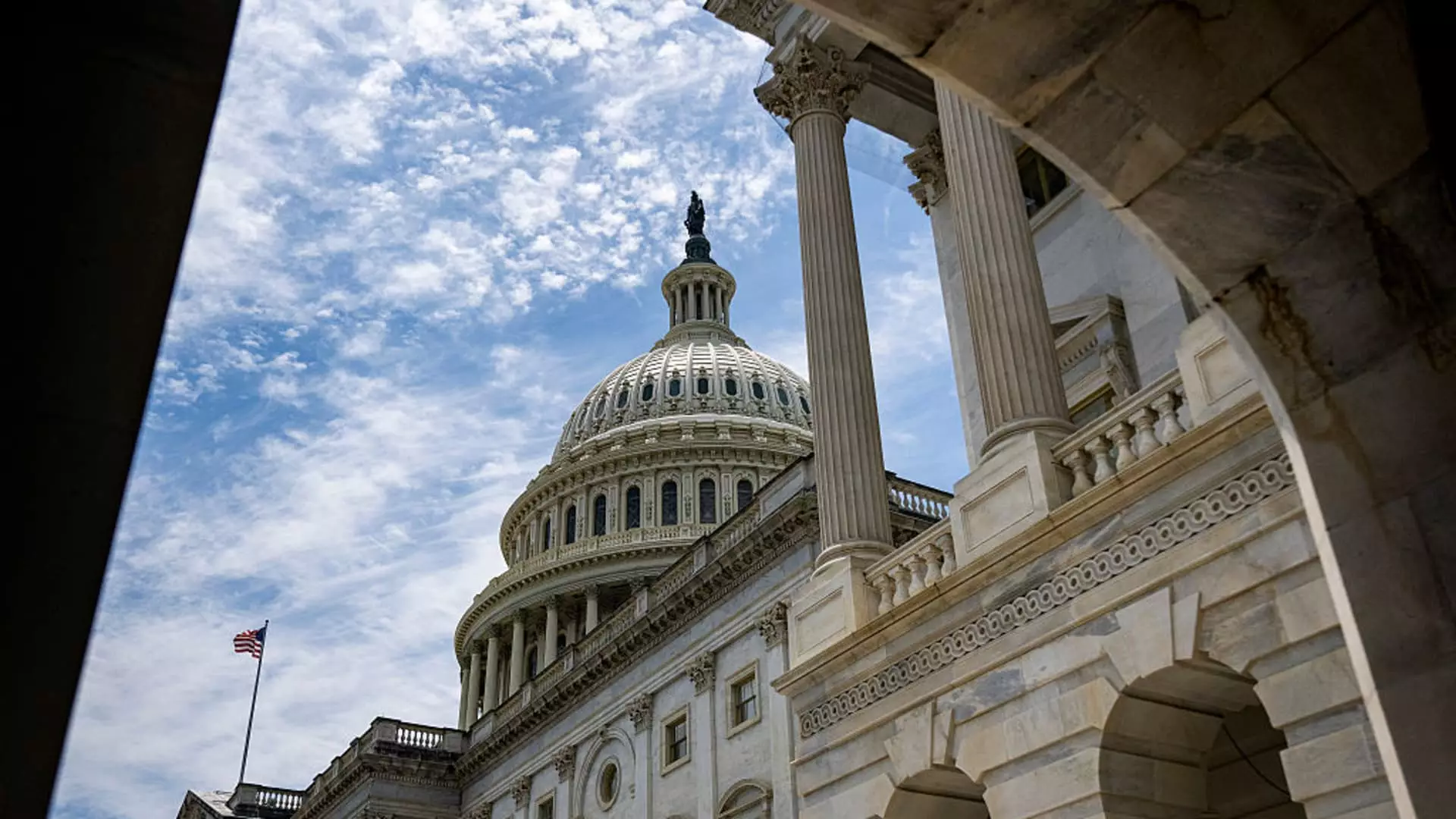In the maze of recent tax legislation, a disturbing pattern emerges: policies are increasingly skewed to benefit the wealthiest segment of society at the expense of the broader middle class and working Americans. While proponents tout these measures as fostering economic growth and investment, closer scrutiny reveals that they primarily entrench inequality. The so-called “big beautiful bill,” championed under President Donald Trump, exemplifies the troubling trend of privileging high-income earners with expanded tax breaks and permanent extensions of the 2017 tax cuts. Far from a balanced approach to fiscal policy, this legislation intensifies the gap between the wealthy and everyone else, perpetuating a cycle of privilege and disparity.
Tax Breaks for the Wealthiest Are a Poisonous Gift
The sweeping benefits allocated to millionaires are staggering. According to the Tax Policy Center, taxpayers earning over $1 million are projected to see their after-tax income increase by roughly 3%—a notable 75,000-dollar boost in 2026 alone. Meanwhile, the average American, with an overall gain of around 2.5%, finds their tax relief comparatively modest. The implications are clear: the rich’s tax advantages are not just supplemental perks but substantial financial windfalls. This disproportionate favoring of the upper class exposes a fundamental flaw in policy design—one that prioritizes short-term accumulation of wealth over long-term societal equity. Why should the pursuit of political favor and economic growth be tethered to such an overwhelming tilt towards those already riding high? It’s an increasingly unjust allocation of public resources.
Loopholes and Special Breaks: a System Rigged for the Wealthy
The bill cleverly preserves and even expands existing loopholes that enable the wealthy to shield more income from taxes. Notably, the SALT deduction cap increase from a mere $10,000 to a hefty $40,000 offers significant relief to high earners, predominantly benefiting blue-state residents. Yet what’s startling is the Senate’s decision to uphold the pass-through entity tax loophole, which allows affluent business owners to sidestep the SALT cap altogether. While ostensibly a measure for fairness, it effectively allows unlimited deductions for these taxpayers—an open invitation for abuse and strategic tax planning that further consolidates wealth among the already privileged. This systemic favoritism isn’t benign; it actively widens the chasm between the rich and the middle class, who bear the brunt of reduced social spending and public investment.
Small Business Tax Breaks: a Double-Edged Sword
The bill’s modifications to small business tax incentives appear to be a boom for entrepreneurs and elite investors. The expansion of the qualified small business stock (QSBS) program raises the eligibility cap from $50 million to $75 million and increases the capital gains exemption from $10 million to $15 million. Such generous thresholds encourage investor speculation and wealth accumulation, often disconnected from real economic productivity or job creation. The narrative that these policies support “small businesses” disguises a reality: they mainly serve the financial interests of the ultra-wealthy and venture capitalists. To claim that these measures bolster innovation or economic dynamism glosses over their primary function—facilitating vast wealth transfers to a tiny minority, eroding the idea of fair opportunity.
Permanent Estate Tax Relief: Comfort for the Ultra-Wealthy
One of the most egregious features of the legislation is the permanent extension of estate tax exemptions. Raising the exemption to $15 million per individual—and $30 million for couples—ensures that a significant portion of inherited wealth remains untaxed for generations. This policy effectively perpetuates the inheritance of privilege, making wealth an almost inalienable right for some families. It stifles upward mobility, as the gatekeeper to wealth is turned ever more tightly in favor of a small elite. While the proponents claim this stabilizes estate planning, in truth, it limits opportunities for upward mobility and concentrates wealth in the hands of an inherited aristocracy cloaked in the guise of economic stability.
Undermining Tax Fairness Under the Guise of Simplicity
The attempt to cap itemized deductions might appear as a move towards simplifying the tax code. However, it strips away significant benefits from the wealthy, particularly those who itemize heavily, such as high-income households with large mortgage payments and charitable contributions. The new limit effectively reduces the tax benefit gained from charitable donations, disincentivizing philanthropy among the rich. Ironically, while middle-income Americans are encouraged to donate through the expanded standard deduction and modest charitable deduction caps, it’s the wealthy—who historically contribute the largest share of charitable giving—whose tax incentives are watered down. This imbalance not only discourages generous contributions but also subtly shifts the moral compass away from societal responsibility.
The Charitable Giving Dilemma: A Mixed Bag for Society
The bill’s approach to charitable deductions underscores a troubling paradox. It attempts to incentivize smaller-scale giving among middle-income households while curbing the generosity of the ultra-rich. High-income donors will face a progressively more restrictive deduction policy—capping benefits and increasing the minimum donation threshold—effectively discouraging large-scale philanthropy. This move strikes at the very heart of a just society: the assumption that the wealthy should contribute a fair share of societal resources. Instead, the legislation subtly shifts the narrative, implying that charitable giving is a privilege rather than a moral obligation, further entrenching the class divide and distancing the social contract from shared responsibility.
A Flawed Plan Rooted in Favoritism and Inequity
Overall, the architecture of this tax legislation revels in structural biases that favor the wealthy while sidestepping the needs of the many. It promotes a vision of economic growth that rewards privilege over productivity, and shortsightedly ignores the long-term societal costs—rising inequality, social fragmentation, and diminished social mobility. By safeguarding and expanding benefits for those at the top, the bill reinforces the very disparities that threaten social cohesion. Its design reflects a cynical prioritization of wealth preservation for the few, disguised as economic policy, leaving the middle and working classes to bear the burden of underfunded public services and rising inequality.

